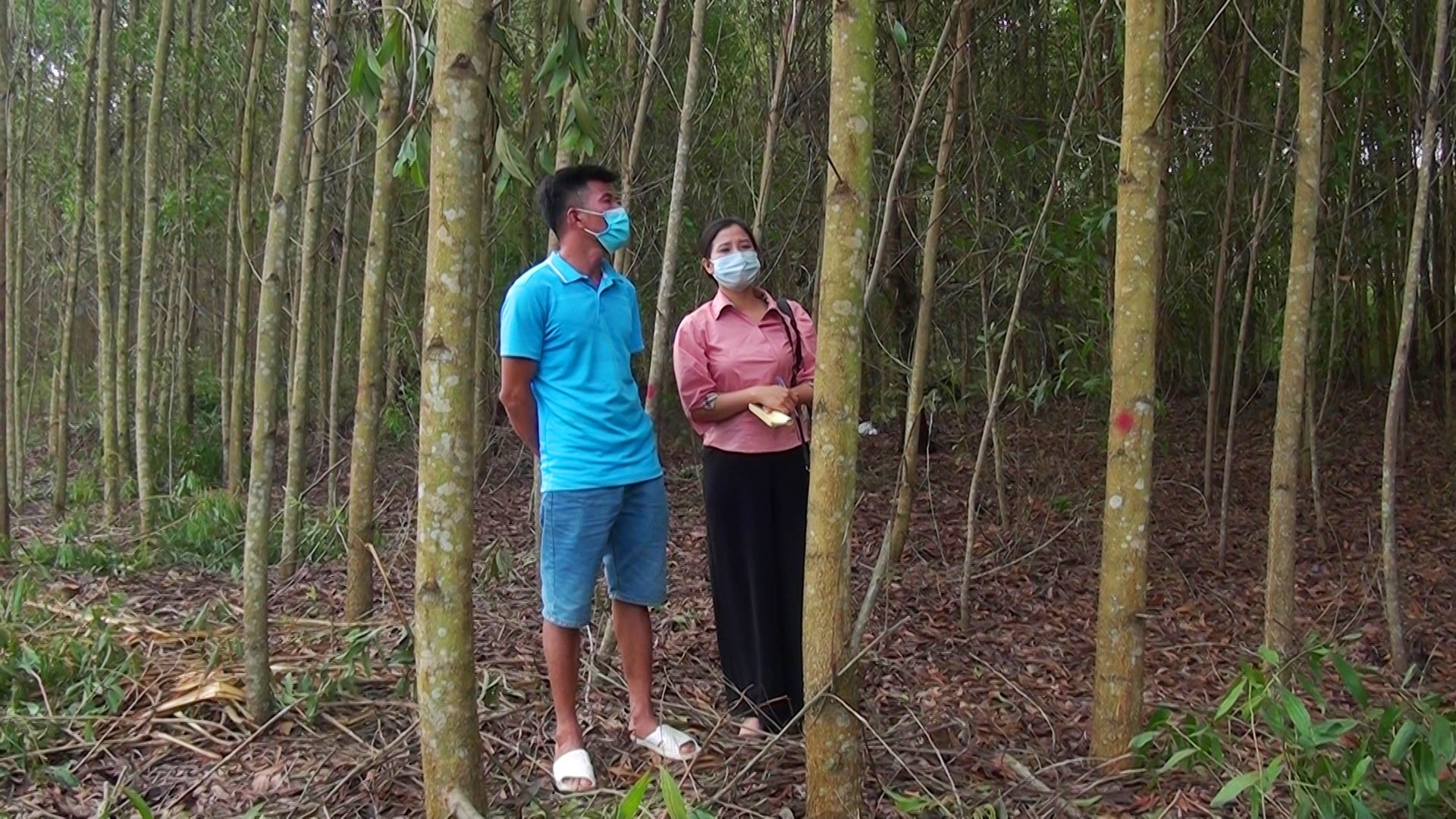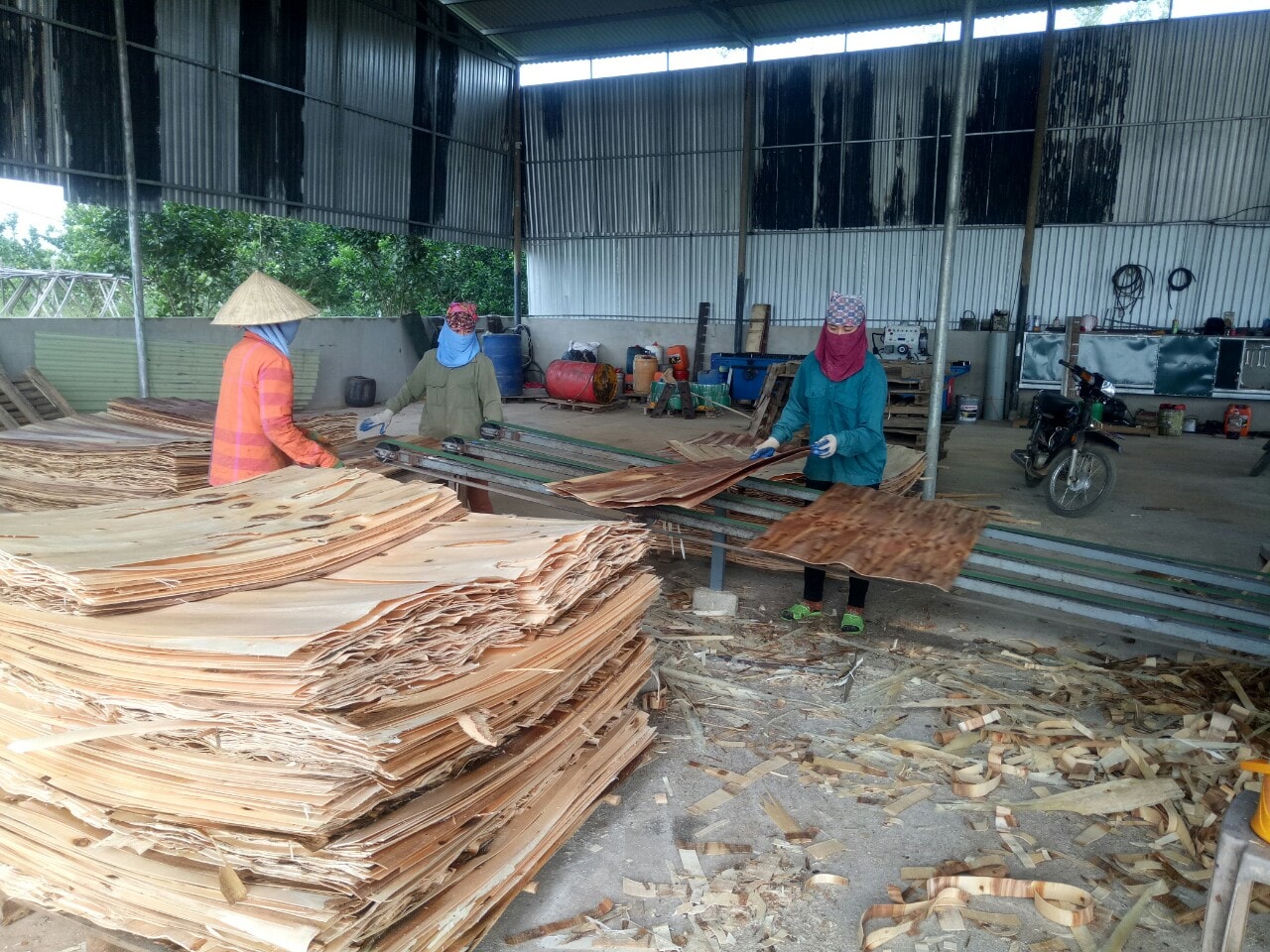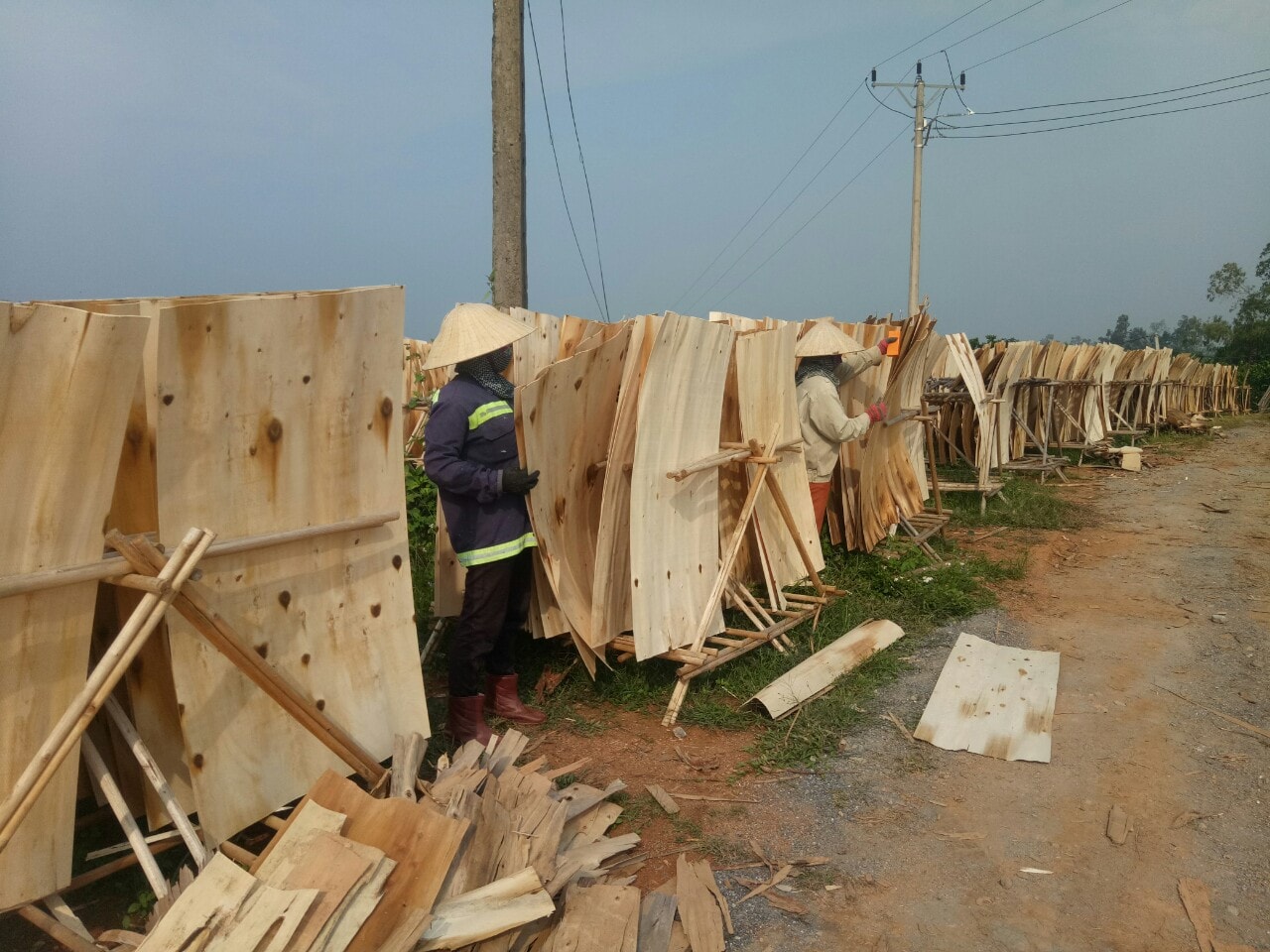Nghe An: Solving output for raw wood products
(Baonghean.vn) - Realizing the advantages of timber trees, many households in Quynh Luu district (Nghe An) have invested in machinery and opened workshops to produce peeled wood panels to solve the problem of product output for forest growers, avoiding traders forcing down prices like before.
Mr. Nguyen Van Giap's family in Quynh Chau commune (Quynh Luu) has 4 hectares of acacia forest for timber. In early 2021, Mr. Giap exploited 1 hectare of forest and harvested 130 tons.raw acacia woodWith a selling price of 1.3 million VND/ton, his family made a profit of more than 80 million VND after deducting expenses.
Mr. Giap shared: “Previously, during harvest season, my family hired workers to go to the forest to harvest acacia wood and then sell it to traders to collect and sell to the northern provinces. Since there are some peeled wood processing facilities in the district, the purchase price has increased compared to the market, on average 50,000 VND more per ton.”
 |
| 4 hectares of acacia forest of Mr. Nguyen Van Giap's family in Quynh Chau commune (Quynh Luu). Photo: Viet Hung |
Meanwhile, Mr. Nguyen Van Thanh's family in Quynh Thang commune has more than 7 hectares of raw acacia trees planted since 2015. From the end of 2018 until now, Mr. Thanh's family has sold 3rd and 4th year acacia crops at a fixed price of 100 million VND/ha, after deducting expenses, the profit is over 80 million VND/ha.
Mr. Thanh shared that acacia trees planted in mountainous areas grow and develop faster than in other areas, and their trunks are large and strong, so their weight always reaches over 1 ton/ster. Besides, the exploitation cycle in other areas must be 5 years or more to ensure output, but locally, it only takes 4 years to achieve a productive harvest. In particular, thanks to the development of the wood stripping profession in the area, which focuses on purchasing from people at prices higher than the market, acacia farmers are very excited.
 |
| Since the establishment of peeled wood processing facilities in the area, output for forest growers has been resolved. Photo: Nhu Thuy |
Quynh Luu DistrictThere are about 10,000 hectares of land planted with acacia and eucalyptus trees concentrated in the communes of Quynh Thang, Tan Thang, Quynh Chau, Quynh Tam, Tan Son and Quynh Tan. On average, every 5 years of planting trees, people harvest raw wood. However, like many other products, biomass wood also suffers from the same situation of good harvest but low price. At the time of the main harvest, people are often forced to sell at a lower price than the market price by traders in the northern provinces.
Based on that reality, with the desire to help people be proactive in harvesting trees, from 2020 to now, Mr. Ho Van Chien in Quynh Thang commune, Quynh Luu district has invested billions of dong to build a factory, install machinery to process raw wood into peeled wood panels. With 2 sets of machines, on average, Mr. Chien's factory consumes over 10,000 tons of wood a year and creates regular jobs for over 40 workers with an average income of 5-7 million VND/person/month. After drying, classifying, and packaging, the products are contracted by paper manufacturing companies to purchase all products.
 |
| Workers collect finished wood panels. Photo: Viet Hung |
From the initial effectiveness of Mr. Chien's model, Quynh Thang commune has now developed into 5 wood peeling processing workshops. On average, each year, these facilities purchase millions of tons of biomass wood for people in mountainous communes in Quynh Luu district at prices equal to or higher than the market price. To ensure that the wood has high economic value when peeling, the workshop owners also have a policy of signing purchase contracts and supporting transportation costs for households harvesting trees 5 years old or older.
After 2 years of development, the peeled wood processing facilities in Quynh Thang commune (Quynh Luu) have been effective, not only contributing to creating jobs and increasing income for hundreds of rural workers but also contributing to creating stable output and increasing the economic value of raw wood.
Ms. Vu Thi Bich Hang - Head of the Department of Agriculture and Rural Development of Quynh Luu district said: Small-scale industries and handicrafts are being formed in the district. For peeled wood production, there are currently 5 establishments, of which 3 establishments participate in the Forestry Cooperative in Quynh Thang.
The district is aiming to develop the wood peeling processing industry sustainably. To do that, the locality will encourage more households to expand production, and at the same time support legal procedures to establish Forestry Processing Cooperatives; forming a chain linking production, consumption, and on-site product processing, striving to consume over 80% of the volume of raw wood in the district by 2025.


